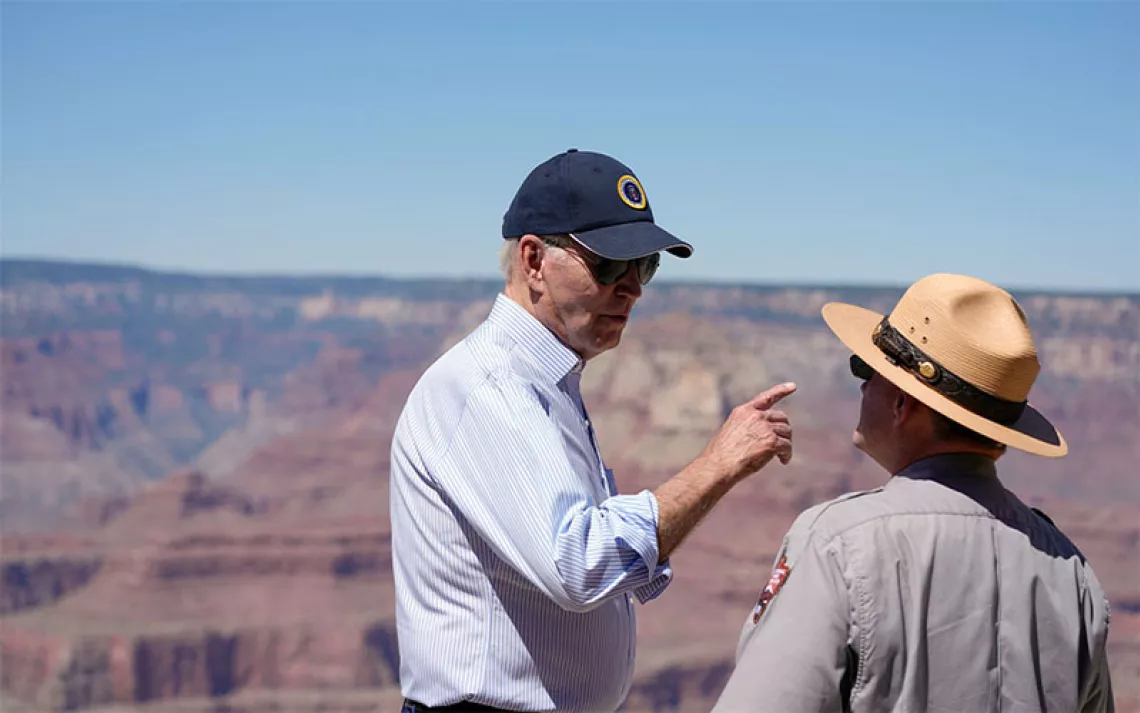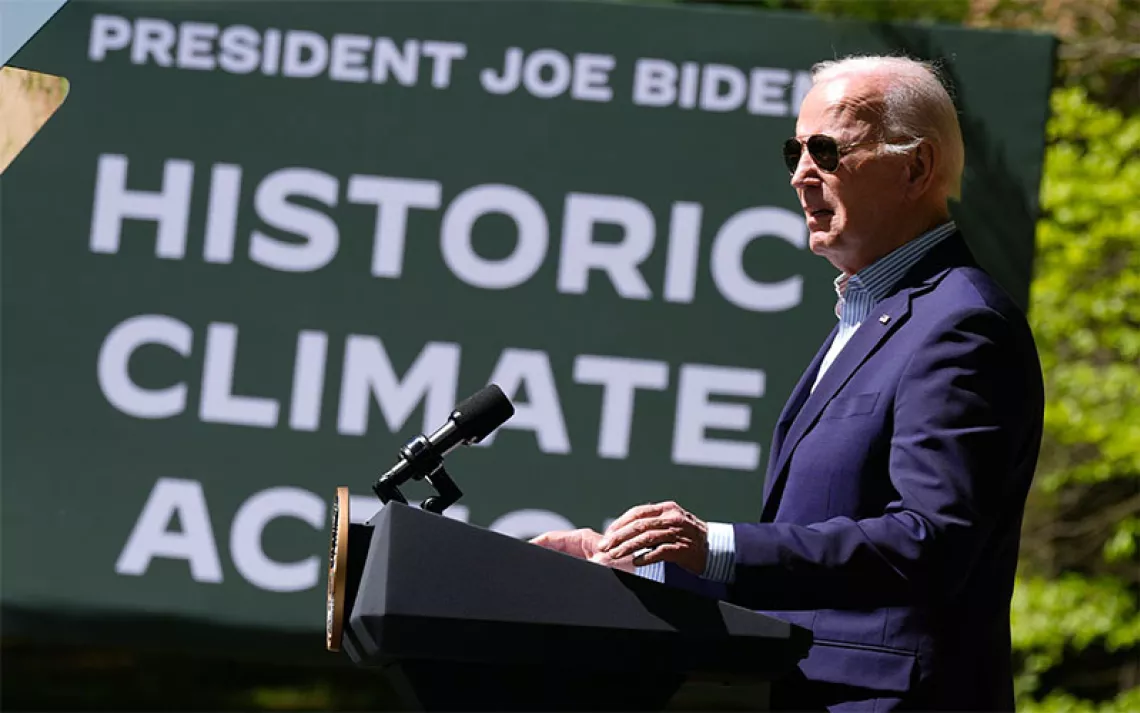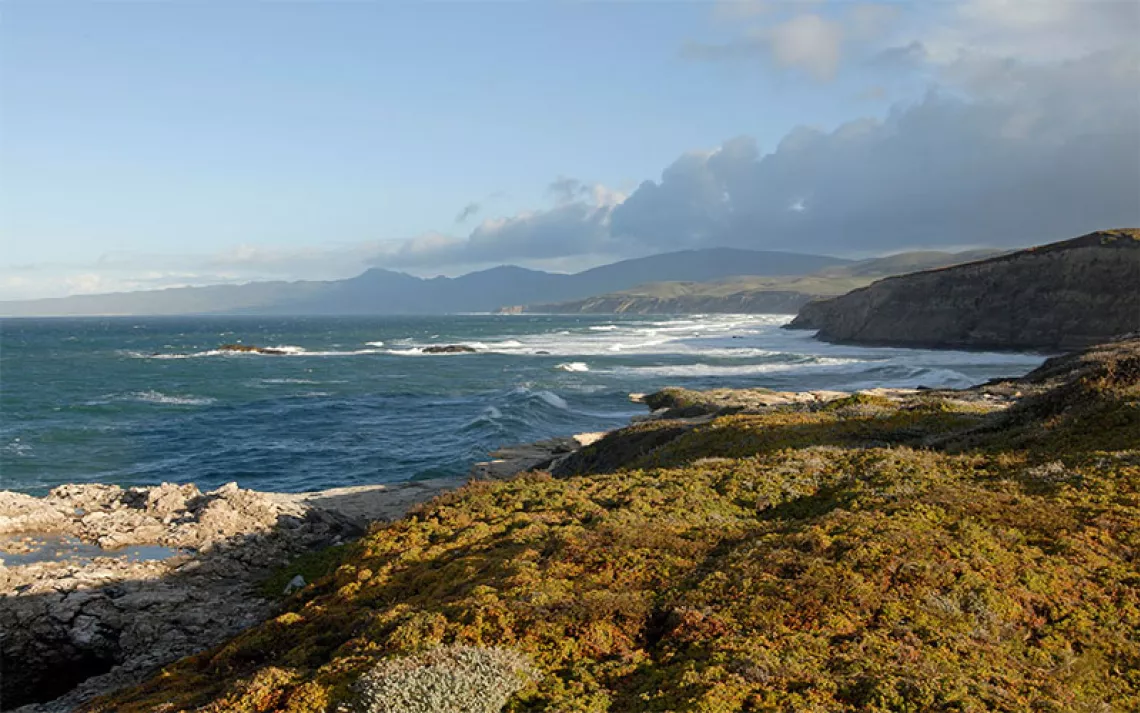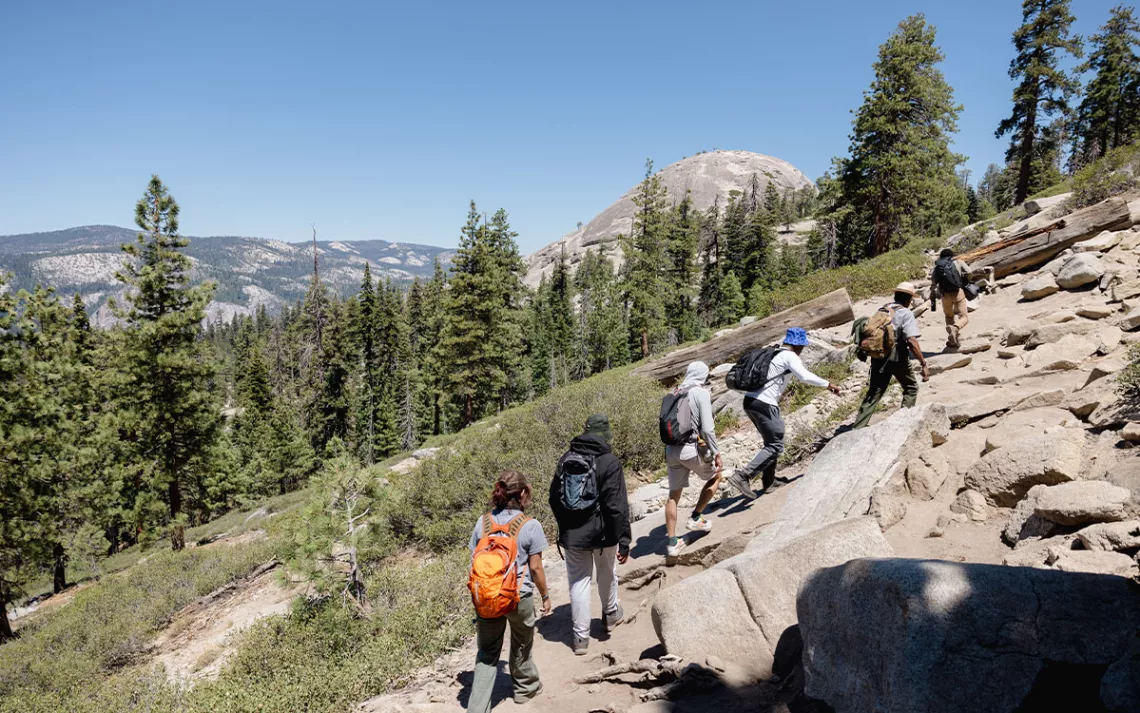What's the Sierra Club Been up to Lately?
Alerts, campaign updates, and victories from Sierra Club volunteers and staff
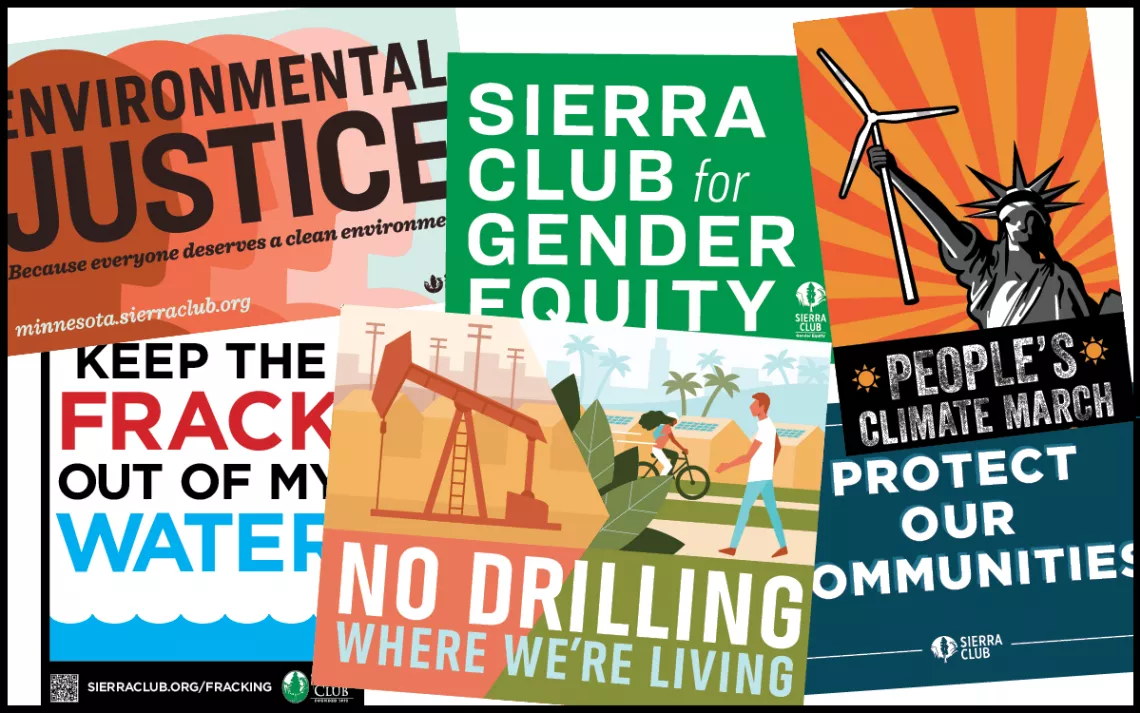
By the Numbers
35 percent: Wind and solar provided a record amount of renewable power during a Texas summer heat wave, helping to keep the state cool while temperatures surpassed 100°F for days on end.
100 million: The number of Americans under an excessive heat warning during a period when temperatures rose even higher later in the summer.
3,203: The number of fires raging across Canada in early July, producing some of the worst air quality in the world in Chicago, New York, and other US cities.
$1 billion: The amount that the Environmental Protection Agency and the Department of Energy pledged for reducing methane gas emissions.
50 percent: The amount of land in Vermont that would be protected by 2050 under a new law that directs the state to conserve land for biodiversity, recreation, and sustainability.
Alerts
Farm Bill Do-Over
The 2023 Farm Bill sets the stage for agricultural policy for years to come, including measures like the Conservation Stewardship Program. The bill will go before Congress this fall. Urge your leaders to vote for a bill that supports the clean energy transition, pays for robust conservation programs, and helps farmers reduce pollution.
» Take action: sc.org/2023-farm-bill
Opening Up the Outdoors
The Sierra Club is trying to make the outdoors accessible to everyone. The Outdoors for All Act and the Transit to Trails Act would further that goal, but they're languishing in Congress. The former would help build trails and green spaces in urban and low-income areas. The latter would help pay for transit to connect urban areas to natural spaces. Tell your representatives to pass these bills so everyone can enjoy public lands.
» Take action: sc.org/kids-outside
Clean Air Scare
The Environmental Protection Agency hasn't updated its source performance standards for nitrogen oxides in 16 years. The Sierra Club and the Environmental Defense Fund sued the agency in 2022 to force an update for the harmful pollutant, which can cause respiratory problems and exacerbate illnesses like asthma. As a result, the agency agreed to review and, if needed, update the standards. "EPA must act quickly to set new and appropriately protective safeguards," said Sierra Club senior attorney Andres Restrepo. "Nothing less than our lives are at stake."
» Read more: sc.org/nox
Victories
Grander Canyon
In August, President Biden protected some 917 million acres around the Grand Canyon by creating the largest national monument of his administration. The new Baaj Nwaavjo I'tah Kukveni–Ancestral Footprints of the Grand Canyon National Monument will prohibit new uranium-mining claims and bring added protections to thousands of Native American cultural sites.
» Read more: sc.org/grand-monument
Neat Bus Fleet
The Department of Transportation's Federal Transit Administration is investing in public transit with its Beyond Cleaner Buses grant program. The agency is giving 130 awards totaling nearly $1.7 billion to cities across the country to overhaul their fleets with new, zero-emission buses. The funding, which comes from the Infrastructure Investment and Jobs Act, will also be used to train autoworkers on building electric vehicles.
» Read more: sc.org/clean-buses
End of the Line
In 2013, easements that had allowed Canadian oil and gas company Enbridge to operate on tribal land in Wisconsin expired. The Bad River Band of Lake Superior Chippewa declined to renew the agreements. Enbridge continued to operate the Line 5 pipeline anyway. This past summer, a federal court ordered the company to shut down the portion that runs through tribal land. "We are heartened that the court correctly held that Enbridge cannot continue its trespass on the band's lands indefinitely," said Erick Arnold, an attorney for the band.
» Read more: sc.org/bad-river
Chapter Corner

Forest Plan Rewrite
The Pisgah and Nantahala National Forests cover over a million acres along the eastern edge of Great Smoky Mountains National Park and play an outsize role in outdoor recreation and biodiversity in southern Appalachia. The Sierra Club's North Carolina Chapter participated in a decade-long collaboration to update the forests' plans. Among its top priorities were protecting old-growth forests, conserving at-risk species, and preserving wilderness. In its final draft of the plans, the US Forest Service ignored much of this input, opting to expand logging and roads. Now the chapter is suing the Forest Service. "It's a shame that the Forest Service has turned a tin ear to legitimate input from all the stakeholders who pointed out substantive deficiencies in the draft plan," said David Reid, the chapter's national forests issue chair. "We collaborated in good faith, in the hope that our input would be respected and reflected in the final version, for the sustainable future of these forests and the health of our broader environment."
» Read more: sc.org/pisgah
Fighting Offshore Misinformation
Anti-renewable-energy groups are trying to undermine the clean energy transition by pitting whale conservation against offshore wind production. While there have been a number of whale deaths on the East Coast, the National Oceanic and Atmospheric Administration says that the likely culprits are ship strikes, ropes, and climate change, which alters feeding habits. The Sierra Club's Atlantic Chapter is combating the false narrative that the deaths are because of offshore wind projects by providing members with accurate news about what's happening in the region. "Of the whale remains that have been studied, 40 percent of deaths are attributed to ship collisions and entanglement in fishing nets," wrote conservation chair Ellen Banks. "Not one has had anything to do with wind turbines. It's a bizarre argument since there is no offshore wind there yet."
» Read more: sc.org/wind-whales
Get Plugged In
Get the latest environmental journalism from Sierra delivered straight to your inbox—along with priority actions from Sierra Club campaigns. Sign up today!
sc.org/the-latest
Campaign Updates
Leveling the Playing Field
The Bureau of Land Management oversees over 245 million acres of public land. For decades, the agency's interpretation of its responsibility to allow multiple uses of the land has allowed the oil and gas, mining, and ranching industries to trample environmental concerns. Now the Biden administration is trying to add conservation as an equal use alongside these industries. The Sierra Club's Our Wild America campaign helped deliver more than 18,000 of the 215,000 public comments for the proposed revision. "That's public engagement that we haven't seen since the Roadless Rule was announced under the Clinton administration," said OWA organizer Kim Pope. "Those hundreds of thousands of comments could be the difference-makers encouraging BLM to finalize a strong public lands rule."
» Read more: sc.org/fair-blm
Better With Age
As CO2 guzzlers, mature and old-growth trees are the best tool available to suck up planet-warming carbon emissions. President Biden took an initial step toward protecting these forests in 2022 by requiring federal agencies to inventory old growth on federal lands. Now environmental groups, including the Sierra Club, are calling on the Forest Service to develop a rule that actually protects and defines old growth. So far more than 460,000 comments have been submitted calling on the agency to follow through.
» Read more: sc.org/save-old-growth
Offshore Wind Takes Off
The Biden administration greenlighted its third offshore wind project, off the coast of New Jersey, following through on the president's clean energy campaign promise. Dubbed Ocean Wind 1, the 1,100-megawatt project has 98 turbines that will eventually keep the lights on in nearly half a million homes.
» Read more: sc.org/ocean-wind
 The Magazine of The Sierra Club
The Magazine of The Sierra Club
